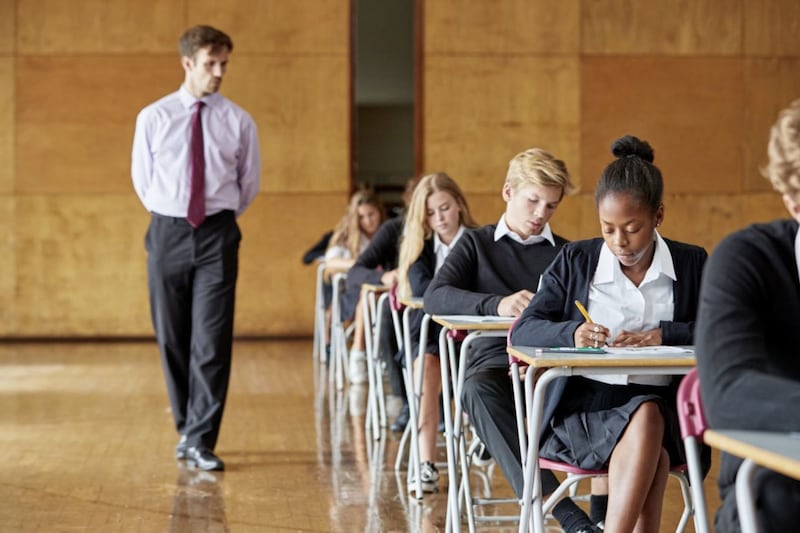EXAM season is well and truly upon us now and anyone with a post-primary school age child will be feeling the heat of stressed out kids.
The NSPCC-service Childline are reporting a dramatic increase in the number of children calling in the month of May – the time in the academic calendar when students are preparing and revising for and taking school examinations like GCSEs and A-levels.
They say that teenagers are genuinely worrying that their lives and their futures will be messed up if they don’t get the grades they need for university or a career.
According to counsellors in the service, young people are consistently saying that exam stress is contributing to depression, anxiety, panic attacks, excessive crying, low self-esteem, self-harming and suicidal thoughts, or making pre-existing mental health conditions worse.
I am currently doing exams myself. I’m in the final year of an English degree. I am 41 years old and I am stressed out about my exams. I find it hard to study and work; then I worry about not studying. Then I worry about not being prepared for the exam, then the worry makes me unable to concentrate on what I’m supposed to be preparing. I get stressed out because I think I’m going to fail and let everyone down, including myself, and this stress makes me anxious and unable to focus on what I’m supposed to be doing.
My two older boys are not yet at an age for the serious exams but do take summer tests and stress about them.
When I recently asked my oldest boy, faced with an exam the next week, if he was studying, he told me he just sat in his room with his books on the bed, just staring at the covers for a few hours. He said he didn’t know ‘how to study’ and was stressed about not being able to study. He said instead of studying he sat there pondering 'how exactly does somebody study?;' not exactly the most productive of exercises.
I told him that everyone is different. There’s no set way to do things. One person might write out history facts 24 times on sheets of paper until they remember them off by heart. Another might look up maths equations that have been fashioned into a rap song online to help them remember. Me? I read over my notes, put the main points I need to put across in the exam into headings, take the first letter of the headings and fashion funny rhymes with them, so that I’ll remember them on the day.
But I told him that everyone is in the same boat. Kids often feel that they are the only ones feeling anxious and sick and as if they can’t do it. Everyone gets anxious about exams, even the person sitting next to you in the assembly hall who looks like they have got it all together. Inside they are also freaking out because they think their entire future depends on how they perform in the next three hours.
I told him even his cool, calm mum gets anxious at exam time. I didn't tell him that the first time I sat a big serious exam since leaving school I felt like throwing up, fainting and standing up to announce loudly and dramatically that I can’t remember anything except my first name and that I was even having bother with that. Instead I told him that I was really nervous but that it wore off after a few minutes when I took a few deep breaths.
Exams are important, of course, but they are not the only route to a successful future.
I think we need to ease the stress on our kids. We shouldn’t put unnecessary pressure on them to get certain grades. We need to make sure they are taking breaks, eating well and getting out for some exercise or to do something that they enjoy.
We need to give them the peace to study and provide them with a nice, relaxing, quiet place to do so. And we need to be there with a hug, a listening ear as well as kind and encouraging words when they need them. We need to tell them we believe in them, we need to be their cheerleaders and we need to tell them that doing their very best is good enough for us.
And we need to tell them that it’s not your result which define you – it’s what you do next to keep going that does.







